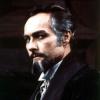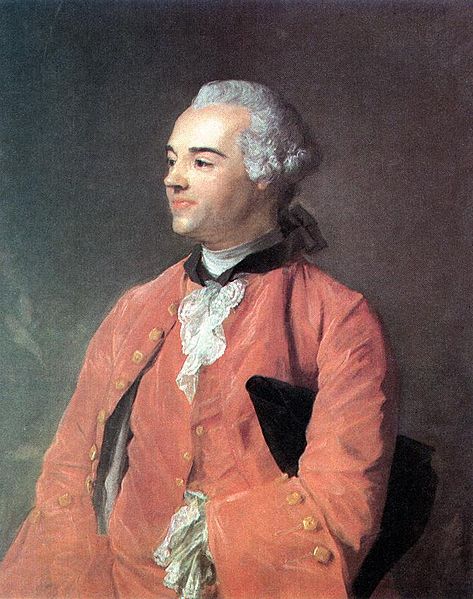 Submitted by Nicholas B on
Submitted by Nicholas B on

Wikipedia Commons
Human beings love to be right about things or at least to figure out correct endings. It gives them a positive sense of self-assurance. But what if you are a psychic and rely upon having a record of correctness all the time?
Jacques Cazotte, a French eighteenth century writer was for all accounts a creative genius. His sense of foresight and boundary breaking imagination for creating works that embraced fantasy, the macabre and sci fi preluded other greats in the field such as Edgar Allan Poe. It is not too terribly surprising that his contemporaries believed that his brand of literary talent included dabbling in Ouija board sessions and scrying.
Cazotte was invariably known as a ‘prophet’ who was correct far more often than not and as a result his popularity scored him invitations into the salons of the rich and famous. One such invitation to a Parisian dinner party in the summer of 1788 led to some rather startling if not thrilling dinner party entertainment.
The guests were engrossed in discussions of the approaching Revolution and what might be in store as a result. Cazotte, of course, was invited to speak on the subject to the esteemed guests … and speak he did with the following …
- King Louis XVI as well as many of the distinguished female guests sitting at the table would be executed.
- Writer and critic Nicholas Sebastian Chamfort was told he would meet with a long suffering death after trying unsuccessfully to slash his wrists 22 times.
- Philosopher and mathematician Marquis de Condorcet whose ideas helped shape nineteenth century sociology, was told he would die on a prison floor after taking poison to cheat the executioner.
- Jean de la Harpe, a bitter atheist and critic, was told that the Revolution would change his non-believing ways and he would turn into a God-fearing Christian.
Needless to say, his predictions met with the range of human reactions from fear to hysterical laughter. Such prominent people could never meet with such horrific ends.
In 1789, the French Revolution brought in the historic abolition of the old order by mostly gruesome means. Mass executions on the guillotine changed the minds of many and most men of all social orders either joined the Revolution or left the country.
Nicholas Chamfort decided to join the Revolution in its early stages but became disheartened and disgusted by all the mass executions. In 1793, he was confronted by Jacobin leaders and threatened with arrest. He knew that sooner or later he would be executed so he decided to commit suicide. This turned out to be more difficult than he anticipated … he had slashed his wrists with 22 death attempts only to die an agonizing death several days later.
Marquis de Condorcet was actively involved in the revolution and was even elected to represent the French capital in the Legislative Assembly eventually becoming its Secretary. He seemed to sail along successfully on the wave of the Revolution until he voted against the execution of Louis XVI and also when he voted to against the arrest of the Girondins. He became very paranoid believing the house he was hiding in was being watched. He spent three days on the run moving from place to place in the village of Clamart but as fate would have it, he was recognized and taken to Bourg-la-Reine where he was imprisoned. The next morning he was found dead on the floor. He had poisoned himself.
Jean de la Harpe was an early advocate of the Revolution but true to his nature began to find fault with the new order. He was labeled a dissenter and thrown in to prison for five months. As predicted, his experience moved him to renounce atheism and become an ardent supporter of Christianity.
Jacques Cazotte own fate was dire as well. Gifts of prophesy at such a superstitious time in history were looked upon in a positive light. He was labeled an enemy of the people and a “Royalist.” He was sent to the guillotine in 1792.
You can read more particulars about Jacques Cazotte’s works and life here: http://collections.stanford.edu/supere/page.action?forward=author_jacques_cazotte§ion=authors
Historic references
https://marilynkaydennis.wordpress.com/2010/09/13/the-jacques-cazotte-prophecy/
- 963 reads